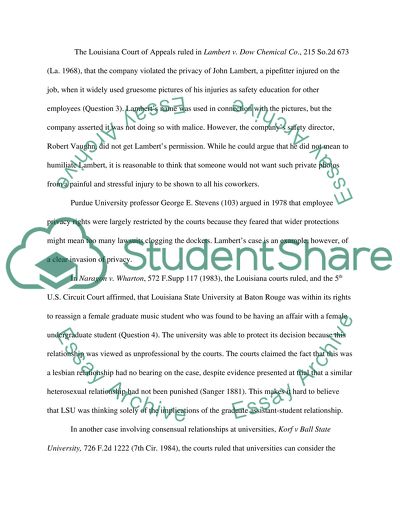Employment Law (Testing & Privacy Rights) Essay Example | Topics and Well Written Essays - 500 words. Retrieved from https://studentshare.org/miscellaneous/1512063-employment-law-testing-privacy-rights
Employment Law (Testing & Privacy Rights) Essay Example | Topics and Well Written Essays - 500 Words. https://studentshare.org/miscellaneous/1512063-employment-law-testing-privacy-rights.


